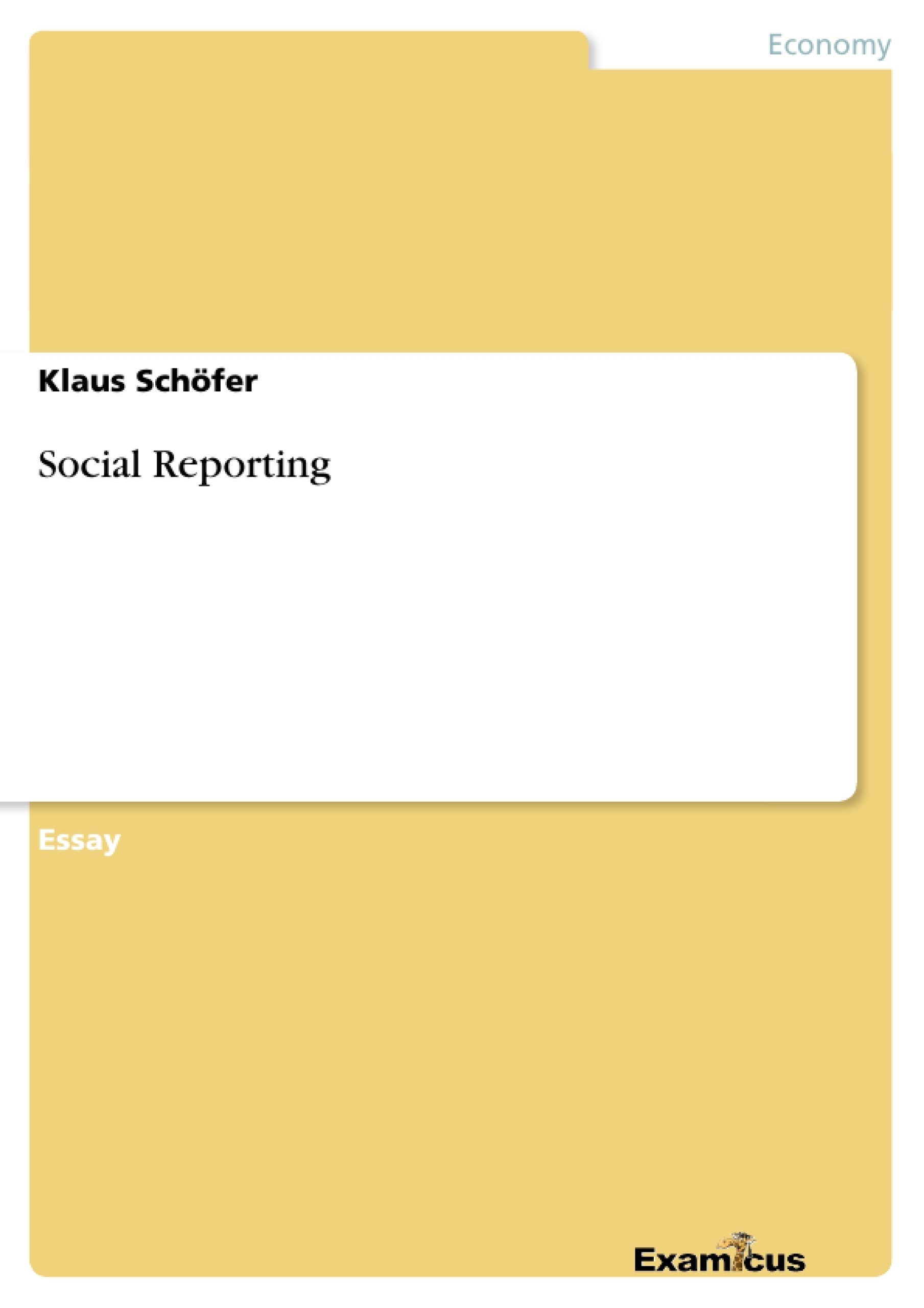Social reporting is the process of communicating the social and environmental effects of organizations [sic] economic actions to particular interest groups within society and to society at large. (Gray et al., 1987, p. ix) As such it involves extending
Table of Contents
- Introduction
- Clarification of the Terminology
- History and Development of Social Reporting
- The Social Reporting Framework
- Justification of additional Disclosures
- Reporting Format
- Institutionalisation of Social Reporting
- Theoretical and Conceptual Basis
- Models and Concepts for Social Reporting
- Accountability
- Social Accounting Standards
- The Audit of Social Reporting
- The Case against Social Reporting
- Conclusion
- References
Objectives and Key Themes
This paper aims to provide a comprehensive overview of the concept of social reporting, exploring its historical development, theoretical foundations, and practical applications. The work examines the evolution of social reporting, its framework and justifications, and analyzes the challenges and criticisms it faces. It also delves into the audit of social reporting, exploring the complexities of assessing and verifying social performance.
- The history and development of social reporting
- The framework for social reporting, including justifications for additional disclosures, reporting formats, and institutionalization
- The theoretical and conceptual basis of social reporting, exploring models, concepts, and the role of accountability and social accounting standards
- The audit of social reporting, including the challenges and complexities of assessing and verifying social performance
- Criticisms of social reporting, including arguments against its implementation and effectiveness
Chapter Summaries
The introduction establishes the context of social reporting as a process of communicating the social and environmental effects of organizations' economic actions to various stakeholders. The paper outlines its aim to provide a descriptive overview of the concept, exploring its historical development, framework, theoretical foundations, and criticisms. It then delves into the audit of social reporting and concludes by discussing future prospects and implications.
Chapter 2, "Clarification of the Terminology," addresses the diverse terminology used in the field, highlighting the widespread use of "social reporting" as a common denominator in both academic research and practical applications.
Chapter 3, "History and Development of Social Reporting," traces the evolution of social reporting as a response to the changing relationship between business and society in the 1970s. It examines the increased awareness of corporate impacts and the shift towards a broader view of corporate responsibilities. This chapter outlines the development of reporting schemes, indicators of social performance, and assessment criteria as means to improve business responsiveness to its socio-political environment.
Chapter 4, "The Social Reporting Framework," explores the justifications for extending accounting disclosures beyond traditional financial reporting. It identifies four key arguments: market-related, legitimacy related, social contract related, and radically related. This chapter also examines different reporting formats, highlighting both quantitative and qualitative approaches, as well as the institutionalization of social reporting through legal requirements, industry standards, and voluntary initiatives.
Keywords
Social reporting, social accounting, corporate social responsibility, corporate social performance, accountability, sustainability reporting, stakeholder engagement, social audit, social accounting standards, legitimacy theory, social contract theory, critical theory.
- Quote paper
- Dr. Klaus Schöfer (Author), 1998, Social Reporting, Munich, GRIN Verlag, https://www.grin.com/document/185872




